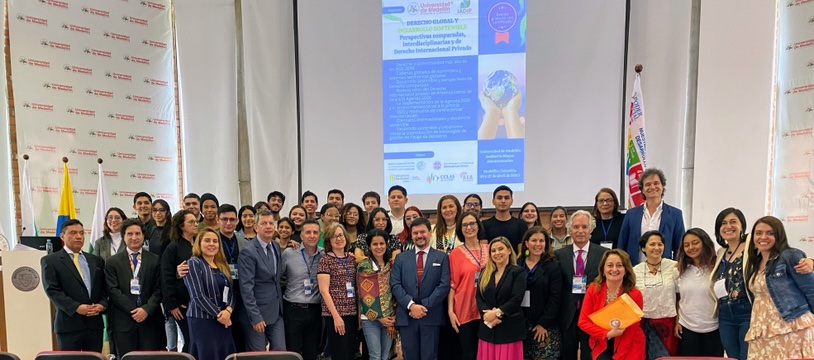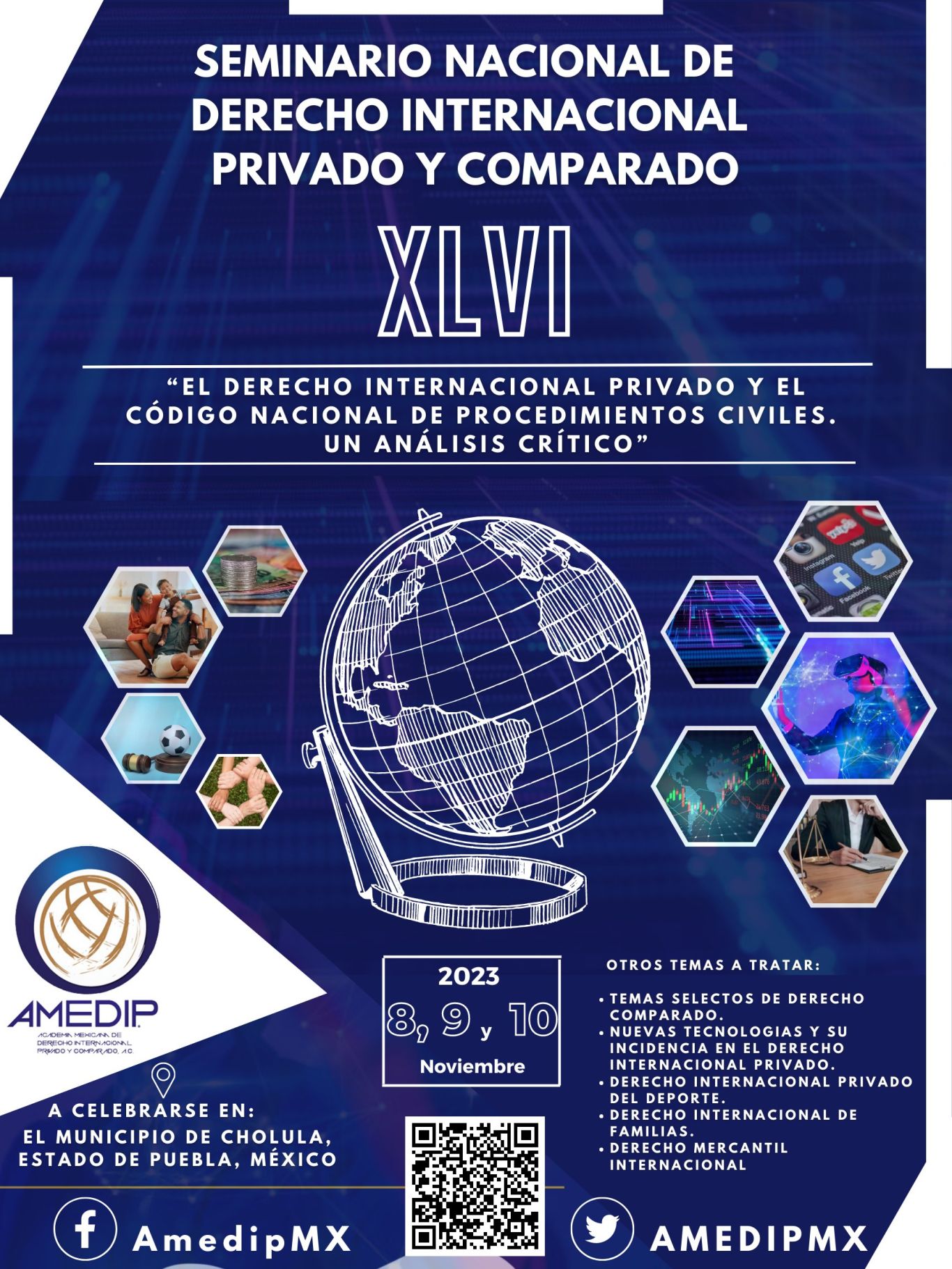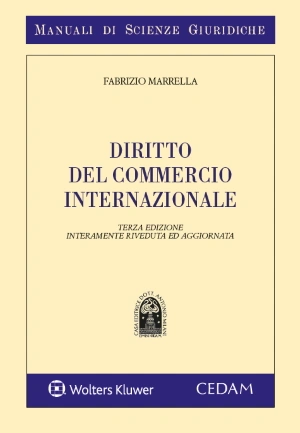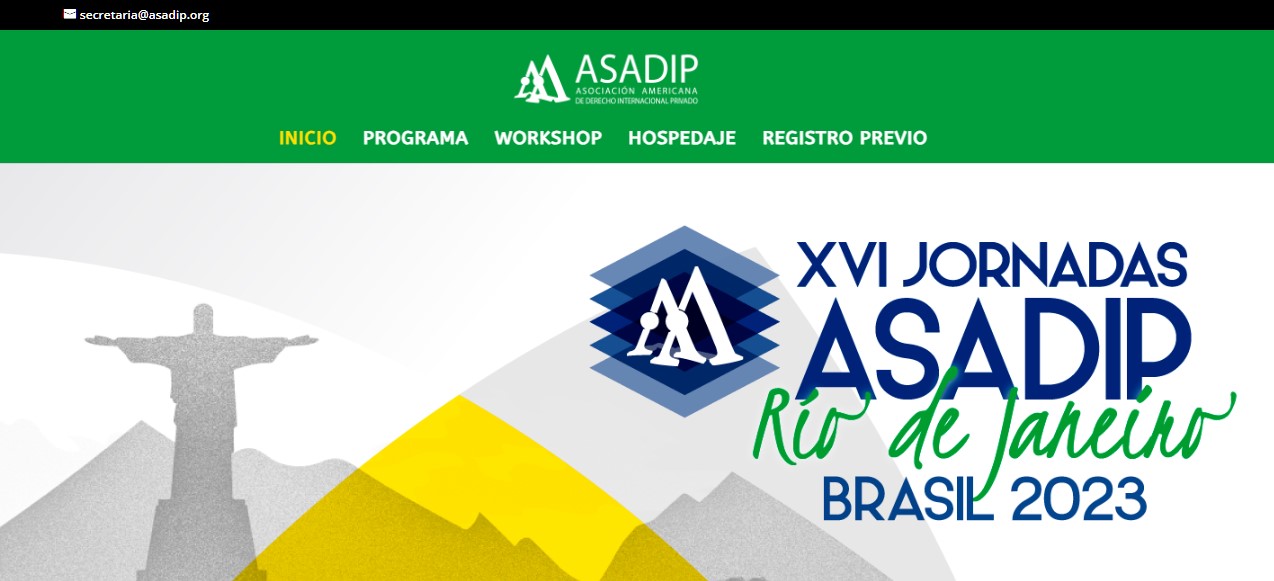DIGI-GUARD – Event on EU civil procedure: Service, Evidence and Brussels I bis Regulations (in Dutch, 3 NOvA education points): 30 November 2023
/in News/by Mayela Celis

An event will take place on Thursday 30 November 2023 at Maastricht University in the Netherlands concerning the Service, Evidence and Brussels I bis Regulations. More information is available here.
This event is being organised within the framework of the DIGI-GUARD project, which is co-funded by the European Union under the JUST-2021-JCOO program and which stands for Digital communication and safeguarding the parties’ rights: challenges for European civil procedure.
Among the topics to be discussed will be the electronic service of documents under the Service Regulation, the upcoming digitalisation regulation, and many other practicalities relating to the service of documents within the European Union. It will also discuss the Evidence Regulation and the latest case law under the Brussels I bis Regulation. Finally, it will include breakout sessions where practical examples will be discussed and led by practitioners.
HCCH Monthly Update: July 2023
/in News/by HCCHConventions & Instruments
On 1 July 2023, the 2000 Protection of Adults Convention entered into force for Malta. The Convention currently has 15 Contracting Parties. More information is available here.
Meetings & Events
On 12 June 2023, the kick-off meeting of the Central Bank Digital Currencies (CBDCs) Project was held online. During the meeting experts laid the foundation for the preparatory and exploratory work relating to the CBDCs Project, which will study the private international law implications of CBDCs. More information is available here.
Podcast series in international and transnational law
/in News/by Giesela RuehlRishi Gulati, Associate Professor in International Law and Barrister, is hosting a new podcast series focusing on hot topics in international and transnational law, as well as domestic law developments with transnational impact. Significant developments impacting the legal profession are also discussed from time to time.
The podcasts are not only designed for a legal audience but also for the broader public using accessible language. They are also intended to be a teaching tool with the 50 or so minute episodes delving systematically on the issues discussed. Each episode invites a highly knowledgeable guest who can bring a unique perspective to the issue. A special attempt is made to include voices from all regions of the world.
Series 1 has now wrapped up and has seven episodes. The first three episodes concern challenges faced by the International Criminal Court, WTO and UN Human Rights Treaty Bodies respectively. The fourth episode discusses the impact of AI on the legal profession, a highly topical issue given the rise of generative AI. The fifth episode discusses the UK’s new subsidy control regime and the Levelling Up agenda. The sixth episode discusses animal rights law, with the final episode in Series 1 dealing with AI and international law from a substantive perspective. Series 2 will return after a short break!
You can subscribe to the podcast in various ways, including via SoundCloud, Spotify, and Google Podcasts
The Arab Yearbook of Public and Private International Law – Call for Submission
/in News/by Béligh ElbaltiFinally!!! A yearbook dedicated to public and private international law in the Arab world has recently been established by BRILL and is expected to be launched in the fall of 2024 called “The Arab Yearbook of Public & International Law” (the Yearbook).
One can only warmly welcome this initiative. It will certainly provide a space for fruitful discussions and a forum where experts from the Arab world and abroad can exchange views, all for the sake of the further development of these areas of law in the Arab region.
The Yearbook’s official website provides the following description:
Conference Report: Global Law and Sustainable Development; Medellín, Colombia. 26-27 April, 2023
/in News/by Ralf Michaels
(authored by Verónica Ruiz Abou-Nigm)
Global Law and Sustainable Development. Conference Report.
On 26-27 April 2023 at the University of Medellín, Colombia, private international law scholars organised and hosted a conference that pushed the boundaries of the discipline and engaged with interdisciplinary and comparative perspectives around the theme of Global law and Sustainable Development. The conference, in Spanish, was organised by the University of Medellín and the Antioquian Institute of Private International Law (IADIP), and supported by D.E.C. Consultores, Edinburgh Law School, the Centre for C
Seminar Report on Personal identity and status continuity – a focus on name and gender in the conflict of laws
/in News/by Thalia KrugerWritten by Thalia Kruger (University of Antwerp) and Laura Carpaneto (University of Genoa)
On 1 June 2023 the European Law Institute (ELI) and the Swiss Institute of Comparative Law (SICL) held the third session of a conference on personal identity and status continuity. The focus of this third session was on names and gender in the conflict of laws. The programme included recent amendments to Swiss legislation, the portability and recognition of names, and new gender statuses in private international law.
AMEDIP: Annual seminar to take place from 8 to 10 November 2023 (in Spanish)
/in News/by Mayela Celis
The Mexican Academy of Private International and Comparative Law (AMEDIP) will be holding its annual XLVI Seminar entitled “Private International Law and the National Code of Civil Procedure. A critical analysis” (el Derecho Internacional Privado y el Código Nacional de Procedimientos Civiles. Un análisis crítico) from 8 to 10 November 2023. The venue of the seminar will be the Hotel Posada Señorial in Puebla, Mexico (and also online).
The main objective of this seminar will be to analyse the recently adopted Mexican National Code of Civil and Family Procedure (we previously posted about this development here), as well as the interrelationship between the new technologies and Private International Law.
Potential speakers are invited to submit a paper in Spanish, English or Portuguese by 31 August 2023. Papers must comply with the criteria established by AMEDIP and will be evaluated accordingly. Selected speakers will be required to give their presentations preferably in Spanish as there will be no interpretation services but some exceptions may be made by the organisers upon request for presentations in English and Portuguese.
There is a fee for participation both in person and online. For more information (incl. prices, hotel, venue etc.), click here.
Save the Date: EU Insolvency Law and Third Countries: Which Way(s) Forward?, 26–28 Oct 2023
/1 Comment/in News/by Tobias LutziOn 26–28 October 2023, the University of Kiel will be hosting a conference on ‘EU Insolvency Law and Third Countries: Which Way(s) Forward?’. It is part of a research project coordinated by Professors Alexander Trunk (University of Kiel) and Jasnica Garasic (University of Zagreb), which is endorsed by UNCITRAL and supported by the Fritz Thyssen Foundation. It is conducted in cooperation with representatives of the European Commission and the Hague Conference on Private International Law.
At the conference, the first results from the project will be presented and discussed with a larger professional and academic public. The conference will also include a Young Researchers Forum on the morning of 26 October.
The organizers have kindly shared the following documents with us:
Further information can also be found at the project website.
Out Now: Fabrizio Marrella, “Diritto del commercio internazionale / International Business Law”, 3rd edition 2023
/in News/by CoL .netThe third edition of Fabrizio Marrella’s textbook on international business law has recently published by Wolters Kluwers/Cedam.

The author (Vice-Rector and Chair of International Law at “Cà Foscari” University of Venice, Italy) has kindly provided the following summary for our readers:
After an historical introduction and a clear systematic analysis of key actors and sources of International Business Law, the book focuses on transnational contracts and commercial relationships of companies by deepening international sales (including the first applications of Incoterms ® 2020), contracts of international transport, insurance, commercial distribution, payments and bank guarantees. The leading methodology used by the Author is that of private international law and best operational practices.
The book also sets out the regulation of foreign direct investment in the light of the latest new regulatory and case-law developments. In the final part, the work examines, in one section, ADR mechanisms together with international arbitration and, in the final section, the most relevant international civil procedure rules for businesses.
The book can be found at the publisher’s website here.

